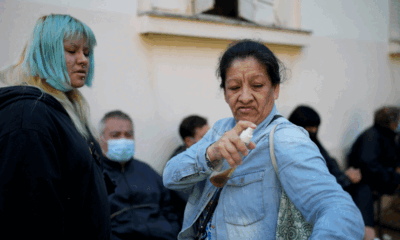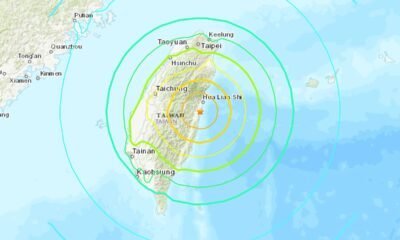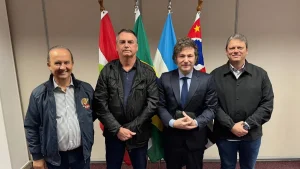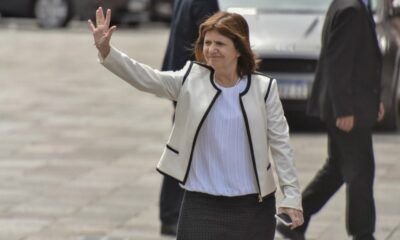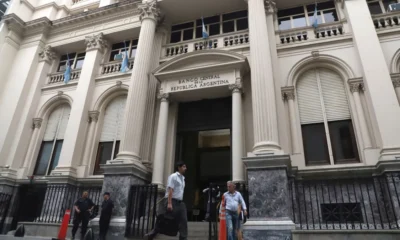INTERNACIONAL
WHO chief’s dire warning: Disease X outbreak ‘a matter of when, not if’
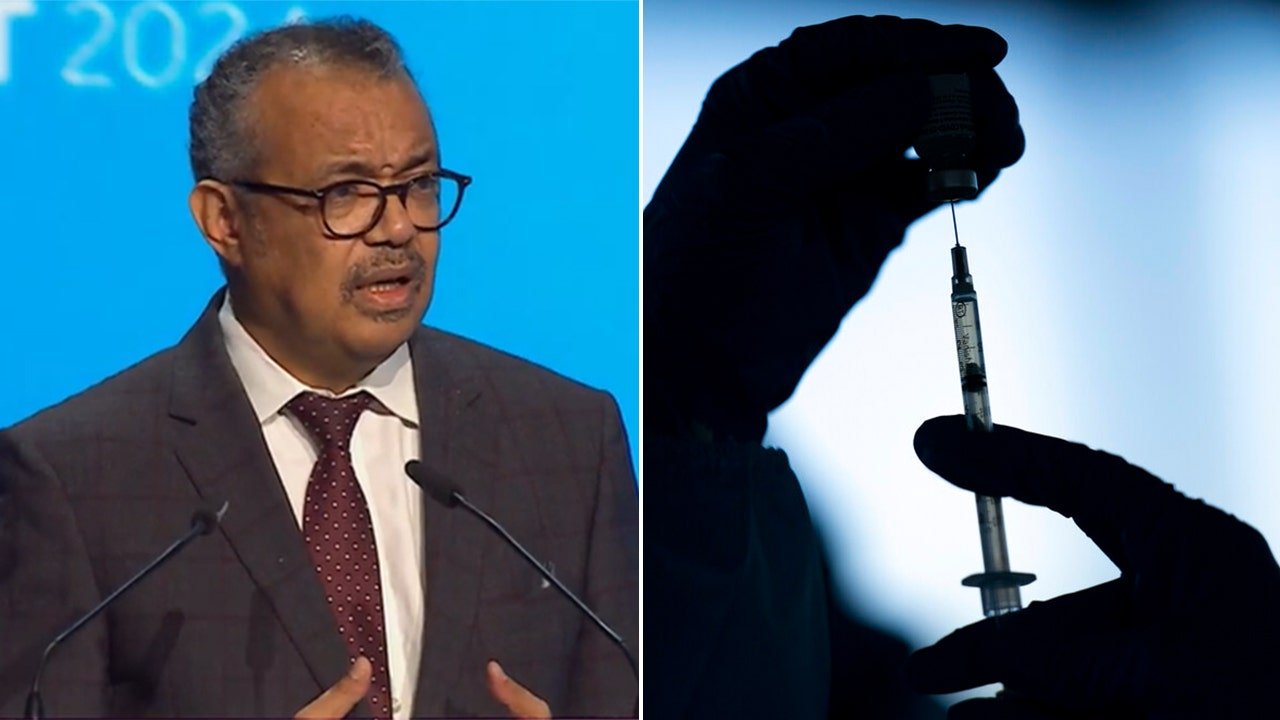
World Health Organization (WHO) Director-General Tedros Ghebreyesus has issued a new warning about the likelihood of Disease X breaking out, telling global world leaders it is «a matter of when, not if» a new pathogen and pandemic will strike.
Tedros, who goes by his first name, told attendees at the World Government Summit in Dubai earlier his week he gave a similar warning in 2018 that a pandemic was likely to hit, and he was proven right with the outbreak of the deadly coronavirus.
Complaining that the world is still ill-prepared for a new pandemic, Tedros once again touted the urgent need for a global treaty to be agreed upon by May and dismissed suspicions of it being a WHO power grab as outlandish.
He called the treaty «mission critical for humanity.»
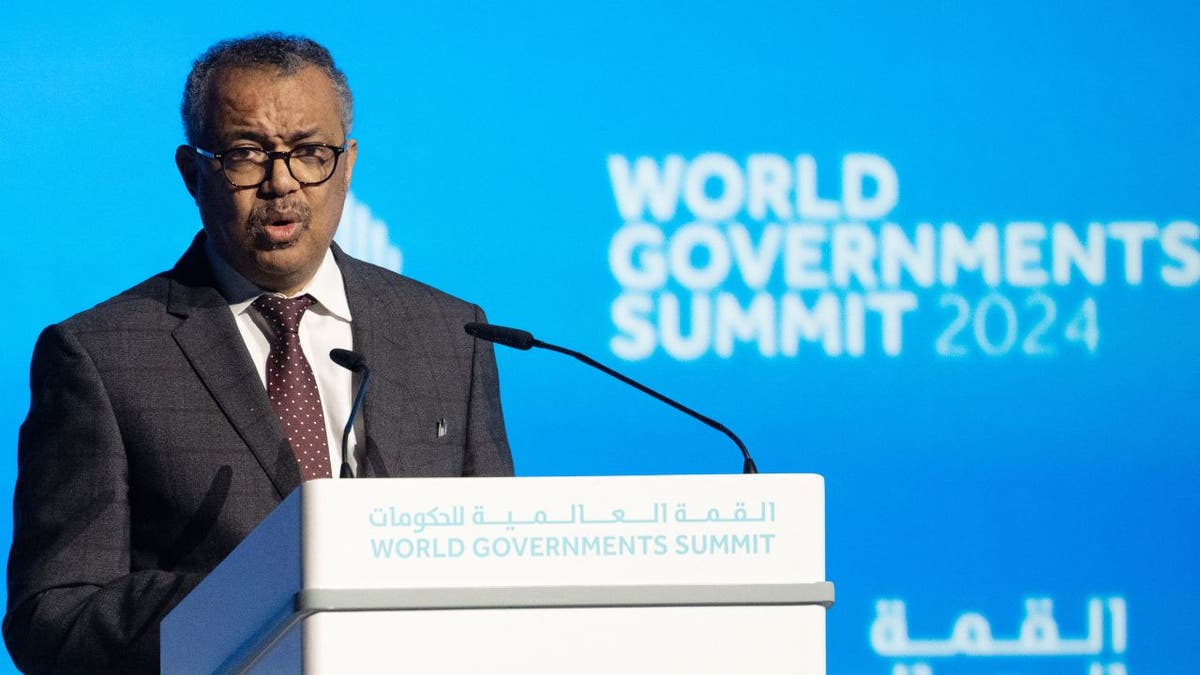
World Health Organization Director-General Tedros Ghebreyesus has issued a new warning about the likelihood of Disease X breaking out, telling global leaders it is a matter of when not if a new pathogen and pandemic will strike. (Ryan Lim/AFP via Getty Images)
WHO DIRECTOR CALLS FOR WORLD PANDEMIC TREATY TO PREPARE FOR DISEASE X
«Today I stand before you in the aftermath of COVID-19 with millions of people dead, with social, economic and political shocks that reverberate to this day,» Tedros said.
«Although some progress has been made, like improvements in surveillance, the Pandemic Fund, building capacities in vaccine production … the world is not prepared for a pandemic.
«The painful lessons we learned are in danger of being forgotten as attention turns to the many other crises confronting our world.»
Tedros said that if the world fails to learn those lessons, «we will pay dearly next time, and there will be a next time.
«History teaches us that the next pandemic is a matter of when, not if,» Tedros added.
«It may be caused by an influenza virus, or a new coronavirus or a new pathogen we don’t even know about yet — what we call Disease X.»
Disease X is a hypothetical «placeholder» virus that has not yet formed, but scientists say it could be 20 times deadlier than COVID-19. About eight years ago, it was added to the WHO’s short list of pathogens for research that could cause a «serious international epidemic,» according to a 2022 WHO press release.
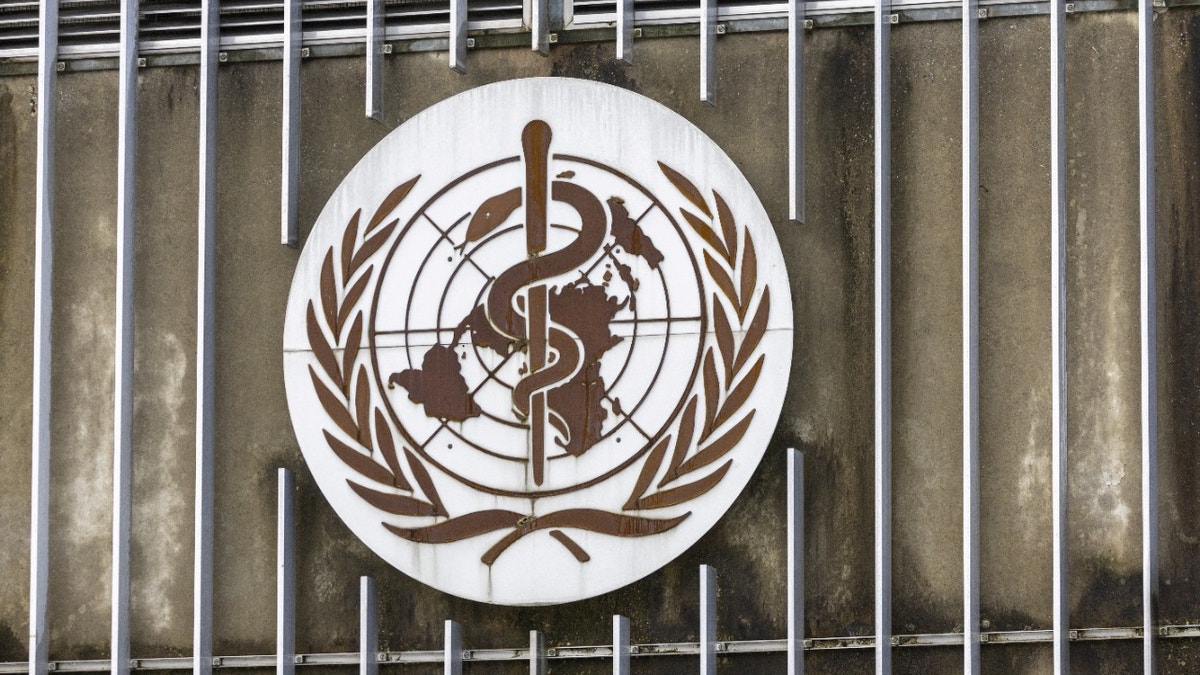
The World Health Organization in Geneva, Switzerland. (Reuters/Denis Balibouse)
«As things stand, the world remains unprepared for the next Disease X, and the next pandemic,» he said.
Tedros said there has been a lot of attention on Disease X lately but insisted it’s not a new thing.
«We first used the term Disease X in 2018, the same time as I spoke here at this World Governments Summit, as a placeholder for a disease we don’t even know about yet, but for which we can nonetheless prepare.»
«COVID-19 was a Disease X, a new pathogen causing a new disease. But there will be another Disease X, or a Disease Y or a Disease Z.»
WHO DIRECTOR CALLS FOR WORLD PANDEMIC TREATY TO PREPARE FOR DISEASE X
In preparation for the next outbreak, he said the clock is ticking on nations to come together and sign an international agreement on pandemic preparedness, with just 15 weeks left on the timeline agreed upon in 2021. Tedros said the treaty, which the Biden administration has been involved in negotiating, is a set of commitments by countries to strengthen the world’s defense with a «one health» approach.
It would involve cooperation in research and development, access to vaccines and other products and sharing of information, technology and biological samples.
He cited two reasons why a consensus has not been reached. The first is nations have some differences, but he was confident they would be worked through.
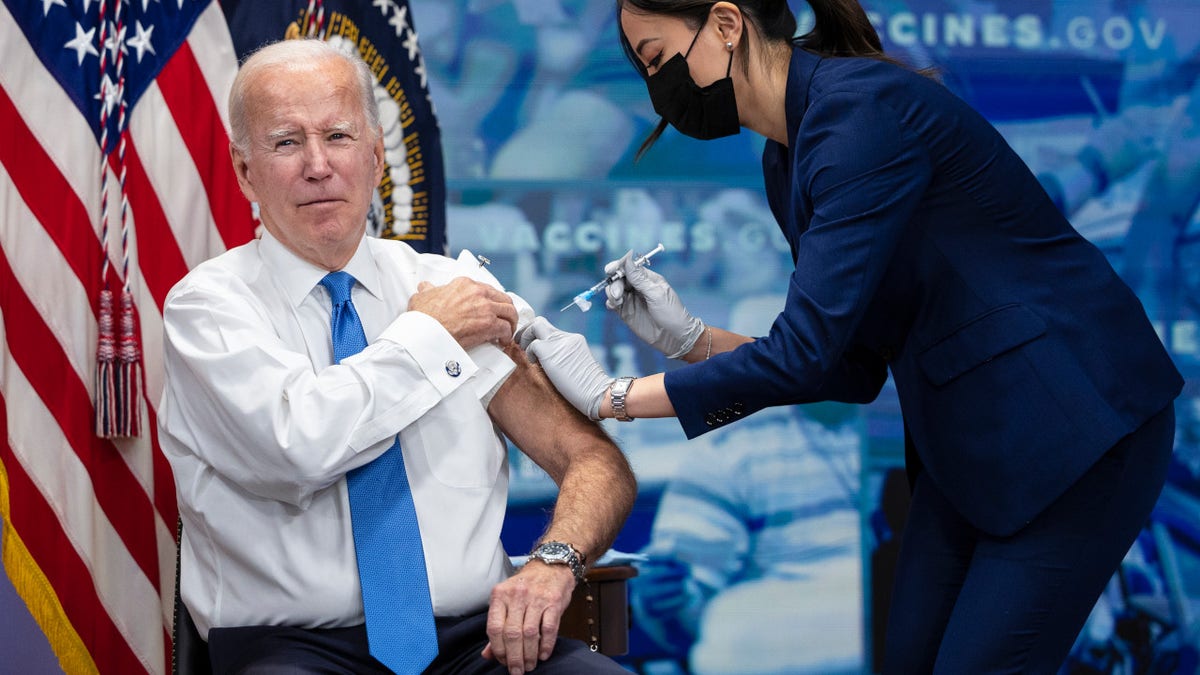
President Biden receives a COVID-19 booster Oct. 25, 2022. (Tom Brenner for The Washington Post via Getty Images)
The second major barrier, he said, is the «litany of lies and conspiracy theories about the agreement.»
«That it’s a power grab by the World Health Organization. That it will cede sovereignty to WHO. That it will give WHO power to impose lockdowns or vaccine mandates on countries. That it’s an ‘attack on freedom.’ That WHO will not allow people to travel, and that WHO wants to control people’s lives.
«These are some of the lies that are being spread. If they weren’t so dangerous, these lies would be funny. But they put the health of the world’s people at risk. And that is no laughing matter.
WHO DROPS INVESTIGATION INTO WHETHER COVID-19 VIRUS LEAKED FROM WUHAN LAB, CALLING THEORY UNLIKELY
«These claims are utterly, completely, categorically false. … Anyone who says it will is either uninformed or lying.»
Critics, including Advancing American Freedom (AAF), argue the legally binding treaty would cede sovereignty to a global organization and that it amounts to a power grab. The AAF is a nonprofit advocacy group founded by former Vice President Mike Pence.
Tedros said there is a draft copy of the agreement on the WHO website and urged people to read it for themselves.
In pitching the treaty, he absolved the WHO of imposing lockdowns and vaccine mandates during the COVID-19 pandemic.

This aerial view shows the P4 laboratory, center, on the campus of the Wuhan Institute of Virology, where many believe the COVID-19 virus emanated. (Hector Retamal/AFP via Getty Images)
«We cannot allow this historic agreement, this milestone in global health, to be sabotaged by those who spread lies, either deliberately or unknowingly.
«Let me be clear: WHO did not impose anything on anyone during the COVID-19 pandemic. Not lockdowns, not mask mandates, not vaccine mandates.
CLICK HERE TO GET THE FOX NEWS APP
«We don’t have the power to do that, we don’t want it and we’re not trying to get it.»
The WHO faced strong criticism from around the world over its slow response to investigating China for the COVID outbreak. A WHO team investigating the origins of the coronavirus pandemic also downplayed the possibility that the virus leaked from a lab near Wuhan, China.
INTERNACIONAL
Elecciones en Francia: quién es Jean-Luc Mélenchon, el polémico líder de la izquierda que dio el batacazo

Cuatro días después de que Emmanuel Macron convocara a elecciones anticipadas tras los malos resultados en el parlamento europeo, un grupo de partidos se unieron y formaron el Nuevo Frente Popular, una coalición destinada a resucitar el Frente Popular que llegó al poder en 1936 para frenar a la extrema derecha, y que promulgó políticas sociales que incluían semanas laborales de 40 horas y licencias remuneradas para los trabajadores.
La amplia –y potencialmente rebelde– alianza estaba encabezada por Jean-Luc Mélenchon, tres veces candidato presidencial (en 2012, 2017 y 2022, mejorando los resultados de cada elección con respecto a la anterior) y líder del partido Francia Insumisa. A él se han sumado los socialistas, los comunistas, los Verdes, y la Place Publique, encabezada por el popular miembro del Parlamento Europeo (MEP) Raphaël Glucksmann.
Y la estrategia parece haber funcionado. En la primera ronda electoral el Nuevo Frente Popular quedó en segundo lugar tras Agrupación Nacional (RN) de la extrema derecha y por delante del actual partido mayoritario del presidente Emmanuel Macron. Y ahora dio el batacazo.
Mélenchon, de 72 años, lleva décadas en la escena política francesa, en las que ha perfeccionando su lírica forma de hablar, mientras abraza sin concesiones las ideas de la izquierda. En el pasado, cuando era miembro del Partido Socialista, ocupó cargos ministeriales en gobiernos anteriores.
De acuerdo a su propia biografía, Mélenchon nació en Tánger, Marruecos, en 1951, y es licenciado en Filosofía y Letras Modernas. Como activista socialista, se convirtió en el senador más joven de Francia en 1986. También es autor de 19 libros, entre los cuales se destaca «La era del pueblo», donde expone su teoría de la revolución ciudadana, indica su sitio web.
Desde las elecciones de 2017, el principal catalizador para el rápido ascenso de Mélenchon parecen haber sido sus actuaciones en los debates presidenciales, donde se destacó por la combinación de ingenio, conversación fácil y su sencilla forma de hablar.
Incluso quienes no están de acuerdo con sus puntos de vista, les gusta ver su desempeño en los debates.
En efecto, Mélenchon es una de las figuras más divisivas de la política francesa, que entusiasma y horroriza a los votantes con sus desenfrenadas propuestas de impuestos y gastos, su retórica sobre la lucha de clases y sus posiciones controvertidas en materia de política exterior, especialmente en Gaza, sus críticos lo acusan de antisemitismo, lo que él niega.
Hasta el año 2012, cuando la ola populista aún no había afectado a Europa, Mélenchon era un candidato marginal, pero el paisaje ha cambiado radicalmente desde entonces. Por eso, incluso en un contexto diferente, el candidato se ha hecho popular entre los votantes más jóvenes, se ha destacado en redes sociales y tiene un famoso canal de YouTube.
El es un «Viejo Insumiso» reciclado, desde senador y ministro del Partido Socialista, a rebelde enojado de la izquierda de la izquierda, para ahora representar “al pueblo”. Neopopulismo post Trump de un tribuno excelso, con inigualable oratoria, admirador de Hugo Chávez, Cristina Kirchner y la revolución Bolivariana.
Mélenchon era un senador socialista y trotskista como el ex primer ministro Lionel Jospin. Un verdadero intelectual, que hace de la conversación y la poesía un placer de la vida. Con una abuela andaluza, con un español perfecto, este ex ministro de Educación de la enseñanza superior descubrió el neo populismo chavista y kirchnerista y se enamoró de él. ¿Nostalgia de Mayo del 68? ¿Por qué no? Tuvo inspiración en el argentino Ernesto Laclau y su guía ideológica su esposa, la politóloga y escritora belga, Chantal Mouffe.
Mélenchon es anti europeo pero diferente a Le Pen. Propone salir de los tratados de Europa para reformarlos. Para conseguirlos, promete un duro tour de force con la canciller alemana Ángela Merkel. Piensa sacar a Francia de la OTAN y con su contrincante Marine Le Pen tienen un punto en común, su profunda admiración por el presidente ruso Vladimir Putin.
-
POLITICA3 días ago
Tras romper con Macri, Patricia Bullrich negó su salida del PRO: “Ni loca me voy, nos quedamos”
-
POLITICA1 día ago
Detuvieron a un hombre armado a metros del acto de Milei en San Juan
-
ECONOMIA3 días ago
La inflación de junio rondaría el 5,2% según los analistas consultados por el Banco Central
-
SOCIEDAD3 días ago
Caso Loan: Camila declaró por más de cinco horas y al salir pidió que encuentren al nene
-
POLITICA2 días ago
El Gobierno busca bajar la tensión con el PRO y dice que cumplirá el fallo por la coparticipación a la Ciudad que reclamó Macri
-
POLITICA3 días ago
Federico Sturzenegger es el nuevo ministro de Desregulación y Transformación del Estado







